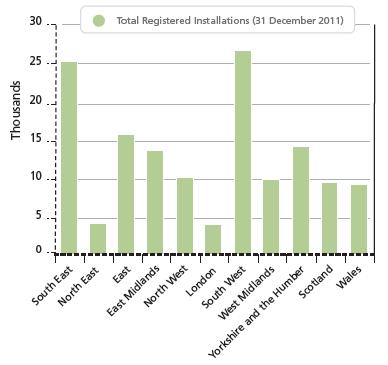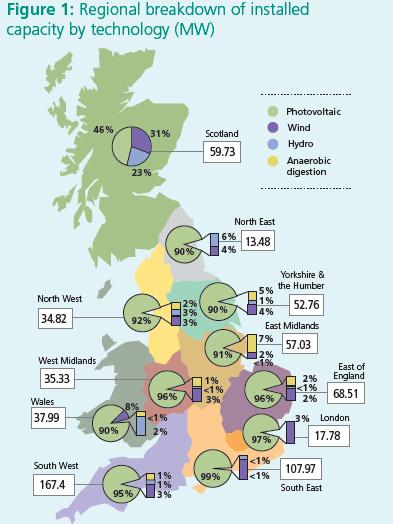Site search:
-
What’s new?
Energy for London Tags
Brent Buildings Camden Carbon Emissions CHP Cities Climate Adaptation Community Heating Community Initiatives Croydon Data DECC Decentralised Energy Distribution ECO Energy Costs Energy Efficiency Enfield FIT Fuel Poverty Funding Green Deal Hackney Haringey Housing Islington Lambeth Library Local Authorities Mayor Newham Ofgem Olympics Photovoltaics Planning RE:FIT RE:NEW Renewable Energy Retrofit Southwark Tower Hamlets Transport Waltham Forest Waste WestminsterEnergy Archives:
- February 2021 (1)
- January 2021 (15)
- December 2020 (15)
- November 2020 (9)
- October 2020 (3)
- August 2020 (5)
- July 2020 (3)
- June 2020 (4)
- April 2020 (10)
- March 2020 (5)
- February 2020 (2)
- January 2020 (3)
- October 2019 (1)
- September 2019 (4)
- August 2019 (2)
- July 2019 (1)
- August 2018 (1)
- November 2016 (8)
- October 2016 (8)
- September 2016 (2)
- August 2016 (8)
- July 2016 (14)
- April 2016 (12)
- March 2016 (16)
- February 2016 (8)
- January 2016 (4)
- December 2015 (1)
- November 2015 (1)
- October 2015 (16)
- September 2015 (3)
- June 2015 (1)
- May 2015 (1)
- April 2015 (1)
- March 2015 (1)
- February 2015 (1)
- January 2015 (1)
- December 2014 (18)
- November 2014 (4)
- August 2014 (8)
- July 2014 (7)
- June 2014 (25)
- May 2014 (8)
- April 2014 (4)
- March 2014 (12)
- February 2014 (7)
- January 2014 (13)
- December 2013 (11)
- November 2013 (15)
- October 2013 (15)
- September 2013 (18)
- August 2013 (5)
- July 2013 (20)
- June 2013 (33)
- May 2013 (8)
- April 2013 (16)
- March 2013 (25)
- February 2013 (14)
- January 2013 (20)
- December 2012 (23)
- November 2012 (23)
- October 2012 (25)
- September 2012 (14)
- July 2012 (12)
- June 2012 (43)
- May 2012 (20)
- April 2012 (8)
- March 2012 (40)
- February 2012 (39)
- January 2012 (40)
- December 2011 (22)
- November 2011 (40)
- October 2011 (33)
- September 2011 (48)
- August 2011 (40)
- July 2011 (58)
- June 2011 (41)
- May 2011 (80)
- April 2011 (38)
- March 2011 (33)
- February 2011 (25)
- January 2011 (24)
- December 2010 (3)
- November 2010 (7)
- October 2010 (6)
- September 2010 (7)
- August 2010 (1)
- July 2010 (2)
- June 2010 (4)
- May 2010 (1)
- March 2010 (3)
- February 2010 (3)
- December 2009 (5)
- November 2009 (2)
- October 2009 (3)
- July 2009 (3)
- June 2009 (1)
- April 2009 (1)
- March 2009 (1)
- February 2009 (1)
- January 2009 (1)
- December 2008 (2)
- October 2008 (1)
- September 2008 (1)
- July 2008 (1)
- March 2008 (2)
- January 2008 (2)
- October 2007 (1)
- September 2007 (3)
- July 2007 (1)
- March 2007 (1)
- February 2007 (3)
- November 2006 (3)
- August 2006 (1)
- February 2006 (1)
- May 2005 (1)
- February 2004 (1)
Monthly Archives: March 2012
LEAF Projects Funding Details
March 2012: Table provided by DECC showing a) Phase One and b) Phase Two projects receiving funding from the Local Energy Assessment Fund (LEAF) including region and funding granted. Details of 11 London projects provided – which are:
- Arcola Theatre Production Company – Dalston Energy Angels
- Camden and Westminster Refugee Training Partnership (C&WRTP)
- Glyndon Community Group
- Hackney Co-operative Developments CIC
- Hyde Farm Climate Action Network
- Hyde Martlet Housing Association
- Local Space Housing (LSH)
- Poplar
- Shrinking the Footprint Campaign (Church of England)
- St. John on Bethnal Green, LB Tower Hamlets
- The London Borough of Tower Hamlets
See an earlier post for fuller details of London LEAF winners.
Highbury businessman forced to axe staff over solar panel subsidy cut
12 March 2012: “An electrician who invested his life savings to set up his dream solar panel business could be left with nothing because of new government policy. Russell Lyne, 31, who lives in Highbury Quadrant, Highbury, spent two years saving and took out a bank loan to raise the £25,000 he needed to set up UK Solar Generation.” Read the full Islington Gazette story here.
Ecobuild hits London
March 2012: Over 130 hugely interesting seminars plus a major conference are all taking place at Ecobuild, to be held over 20-22 March at the Excel Centre at Royal Victoria Docks.
Far too many seminars to detail here, but they cover all aspects of renewable and community/decentralised energy systems, building energy efficiency, the Green Deal, FITs, behaviour change, low carbon cities, climate adaptation etc.
Apply for a free ticket at www.ecobuild.co.uk.
Posted in Events, News
Leave a comment
Event: Low Carbon Planning to Local Advantage
March 2012: Free Carbon Trust half-day seminar which will focus on how local authorities and developers can use low carbon planning policies to their advantage, to leverage investment funds and shape their local infrastructure and environment in ways that support local plans and community needs. The event will take place at:
Kensington Town Hall on Wednesday, 18 April 2012 from 09:00 to 12:30. Further details here.
Event: Community Approaches to the Green Deal
 March 2012: An event organised by the Greener Jobs Alliance in conjunction with South Thames College and the Furzedown Low Carbon Zone. “Find out whether the Green Deal will benefit local employers and communities and find out how you can sign up to training courses.”
March 2012: An event organised by the Greener Jobs Alliance in conjunction with South Thames College and the Furzedown Low Carbon Zone. “Find out whether the Green Deal will benefit local employers and communities and find out how you can sign up to training courses.”
Thursday March 15th, 2012
1:30pm – 3:30pm
Performance Studio, South Thames College, Wandsworth High St, London, SW18 2PP. Please RSVP to Graham.Petersen@south-thames.ac.uk
‘Juice your Roof’ meets Energy Minister
7 March 2012: Interesting account posted on the Low Carbon Communities Network website of Merton based solar initiative ‘Juice your Roof’ meeting new DECC Secretary of State – and London MP for Kingston and Surbiton – Ed Davey.
Joju Solar
5 March 2012: Profile in the Evening Standard of Islington-based solar company Joju Solar. “one London company — the first in the capital to receive a licence for solar-panel installations, in 2006 — says it is confident of doubling in size this year. Islington-based Joju Solar, run by brothers Joe and Phil Michaels, claims demand for panels is stronger than ever.” Further information on the company at www.jojusolar.co.uk
Low levels of FIT activity in London
March 2012: Energy regulator Ofgem have just issued their latest quarterly report on the progress of Feed in Tariff (FIT) installations across the UK, providing details up to the end of 2011. As reported in a previous post, the last few months of 2011 has seen tremendous activity in relation to photovoltaics, due to the reduction in the support tariff levels from Government. The newsletter highlights that as at 31 December 2011, a total of 147,112 renewable installations have been registered under the scheme since 1 April 2010 (when the scheme started) of which, more than 65,000 installations were registered within the last three months.
Continuing from previous quarters, Ofgem report that photovoltaic (PV) installations continue to represent the vast majority of newly registered installations at over 99 percent of all installations registered between 1 October and 31 December 2011.
Ofgem fortunately also provides a regional breakdown of installations, which highlights a disappointing level of activity in London. In terms of the number of FIT installations, London appears to come at the bottom – just equal or below to the North East – with around 4,000 installations – significantly below all other regions (apart from the North East) – and only 1/6th as much as the best performing region. This number of installations in London represents less than 3% of the total as at December 2011.
 Ofgem also helpfully provide the following regional generation capacity breakdown:
Ofgem also helpfully provide the following regional generation capacity breakdown:
 Of the total 661.07MW of of generation capacity registered under the FITs scheme since 1 April 2010, London has the second lowest level of installed capacity at 17.78MW – just 2.7% of the total (only the North East is lower – a region which does after all have lower levels of insolation).
Of the total 661.07MW of of generation capacity registered under the FITs scheme since 1 April 2010, London has the second lowest level of installed capacity at 17.78MW – just 2.7% of the total (only the North East is lower – a region which does after all have lower levels of insolation).
No analysis has been undertaken as yet to why some regions have been more successful than others, or what have been the key factors to the uptake of PVs. London certainly seems to have an active number of solar companies working within the capital and would have significant roof space, both domestic and non-domestic, that would be suitable for the installation of PVs. The high density of rented accommodation (as opposed to owner-occupiers) in London and typically higher costs associated with scaffolding may have been contributing factors. However, it is unlikely that they are the key determining factors in relation to identifying London’s poor performance.
The Community Generation Fund
March 2012: A new fund by a fund management organisation called the FSE Group, has been launched to support communities seeking to develop renewable energy generation infrastructure.
The website for the Community Generation Fund states that the fund “will provide commercial but creative loan funding for communities at the pre-planning (“development”) stage of their projects, as well as the construction (post-planning) stage:
- Development Loans: Contingently-repayable loans for design, environmental and other external costs involved in achieving the required planning and other consents/licenses
- Construction Loans: Long-term loans for equipment, construction & commissioning costs (post planning consent) either stand-alone or alongside bank finance.
The Fund will consider project sizes from 25kWp capacity upwards, subject to assessment of technical viability, financial viability and social impact. The level of project typically is likely to involve total feasibility/pre-planning costs of £20,000-£150,000 maximum (depending on technology and scale) and construction costs of £250,000-£2,000,000 maximum.” The invitation for communities to submit “pre-applications” has a closing date of 16 April 2012.
This fund follows on from the recent announcement by the Co-operative’s Community Energy Challenge which has recently closed (29 February – and has received 123 applications) and also the next round of the energyshare fund (which has a deadline by the end of March for applicants), as well as recent Government-funded community energy grant schemes, CSEP and LEAF.
Community Consultation on proposed energy from waste plant
6 March 2012: The Croydon Guardian reports that: “The company that wants to build a major incinerator in Beddington has announced its programme of community consultation on its plans.
Waste company Viridor has revealed details of the facility on its landfill and waste management site in Beddington Lane, which will create energy from burning 275,000 tonnes of waste each year.
The £200m project, which will handle not only waste from Sutton, Croydon, Kingston, and Merton, but also large amounts of business waste.
By burning non-recyclable waste to create steam to power turbines, the incinerator is expected to produce about 30 megawatts of electricity and heat energy, estimated to be enough to power 30,000 homes.” Read the full story here. Previous Croydon Guardian stories can be seen here and here and here.
Solar panels fitted by Islington Council criticised
3 March 2012: “Solar panels fitted to homes have been criticised for potentially harming property values and saving residents less than 1p a year on their electricity.” Read the full Islington Gazette story here.
Planning and London’s energy infrastructure
March 2012: The GLA have just issued for consultation the London Plan Implementation Plan which appears to be a new initiative seeking to “set out how the policies of the London Plan will be translated into practical action.” The effectiveness of the London Plan’s climate and energy policies are reviewed in regular monitoring reports, the latest of which was published in January 2012. This report contains a specific section (page 34 onwards) considering some key challenges of London’s energy infrastructure, with a focus on London’s gas and electricity distribution networks, over the coming years and the role that decentralised energy has to play.

